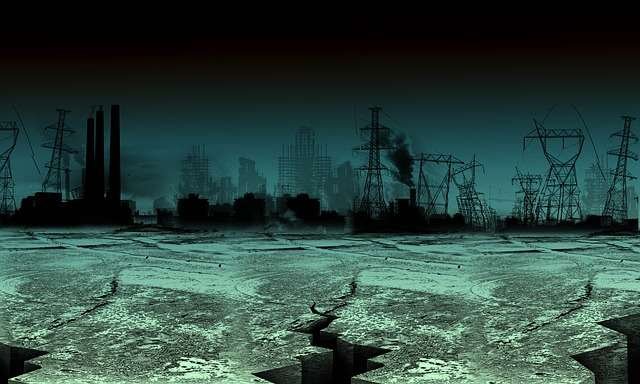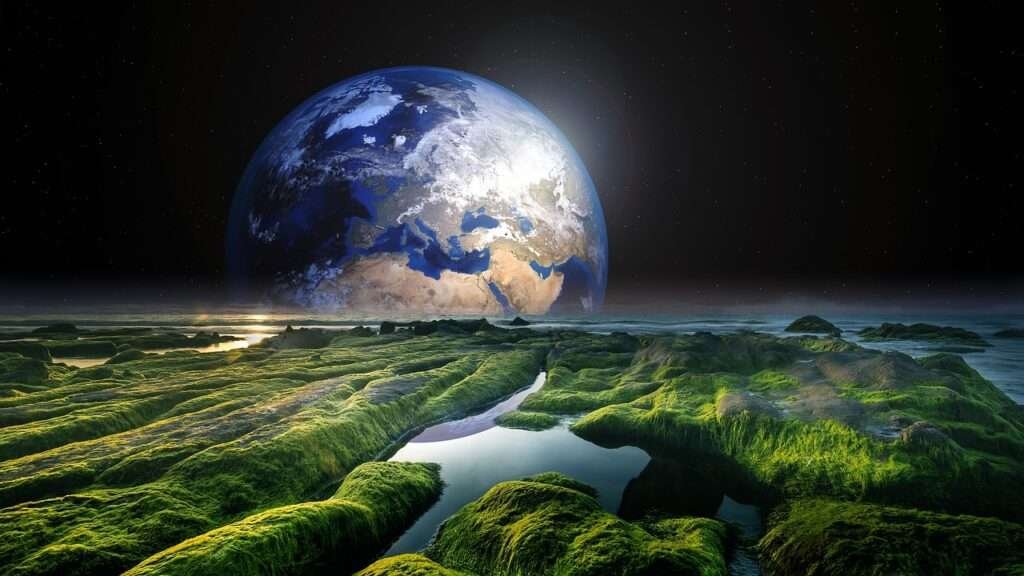Environmental Transformation Action Plans.
Environmental transformation refers to a
fundamental, systemic shift in how we interact with and relate to issues that
exist with fixing the many environment issues with our planet.
It is a way of allowing us to move away from
patterns of scaring people into complying with the noise made by people with
extreme views tat look to exploit and degrade rather than help and encourage.
We can fix the many environmental issues we face
via small manageable chunks. A measured and
manageable approach is required and this will allow for greater participation with
projects aligned with sustainability, regeneration, and biodiversity harmony.
A
Holistic Approach Towards Environmental
transformation.
Transformation implies gradually addressing
environmental issues not just through trying to do things at the extreme ends
of the scale. We don’t benefit from
trying to fix everything at once, nor do we benefit from piecemeal actions that
cause people to lose faith.
By gradually transforming the underlying systems,
mindsets, and structures that have led to environmental degradation, we can
actually witness change and get excited about our progress.
It involves workable changes in policies,
technologies, economic models, consumption patterns, and cultural values.
Long-Term
And Gradual Environmental Corrections.
The term “transformation” suggests a
process that unfolds over time, rather than a sudden or abrupt change. It
recognizes that achieving environmental sustainability is a complex and
multi-faceted endeavour that requires persistent and incremental efforts.
Change the way we think and talking about things
relating to the environment via:
1.
Positive framing:
“Environment Correction Actions” usually have big sense of urgency,
sacrifice and burden associated with them.
This can be off-putting to some stakeholders. Environment Transformation Actions on the
other hand, has a more positive connotation, implying growth, progress, and the
creation of something new and better.
2.
Inclusive
and collaborative: Environmental transformation
emphasises the need for collective participation and collaboration among
various sectors, including governments, businesses, civil society, and
individuals. It recognises that no single entity can solve environmental
challenges alone and that a shared vision and coordinated efforts are
necessary.
3.
Regenerative
and restorative: Rather than simply mitigating
or minimising environmental damage, transformation often aims to gradually restore
and regenerate natural systems, fostering a mutually beneficial relationship
between humans and the environment.
In essence, environmental transformation suggests
a holistic, gradual, positive, inclusive, and restorative approach to
addressing environmental challenges.
Let’s move away from having a narrow or extreme focus
on isolated environmental actions and planet fixing measures.
We need to start acknowledging that sustained
changes will come from eating away at any negative deep-rooted poor behaviour
we’ve had for many years. If we work to
change perceptions, change our thinking and better interact with the natural
world, we can ensure future generations will be able to enjoy our planet more
than what we can possibly imagine that the moment
The
Planet Fixing Tasks We Face Are Many & Varied.
Every species on this planet is impacted by
environmental issues like air pollution, species extinction rates,
desertification, overpopulation, fresh water scarcity, deforestation, ground
water contamination, burying billions of tonnes of rubbish into the ground (waste
management) and varying levels of climate change.
Our environment has deteriorated at an alarming
rate over the last century and humans have continued to deplete the planet’s
resources as if everything good in the world we break was able to fix itself
whilst we sleep.
Over the last couple of decades, horrific
disasters such as bushfires, droughts, flooding, earthquakes, tsunamis, and
cyclones have become more intense and more common.
A lot of us feel as though we humans are
responsible for a good portion of this.
Maybe this is true, maybe it’s not but there’s no point trying to fix
all of these things at once. For one
thing, that’s just not possible.
We need to closely examine what we’ve been doing
to this planet, why we’ve been doing it, how we’ve been doing it and when have
we done it.
We need to be Rational
Thinking Humans when it comes to developing an action plan for fixing the
many issues that we’ve created and the flow on effects that our actions have
instigated.
Let’s not waste time and money pointing fingers at
who has being doing things in the past, let’s look at what they can do better
today.
There will not be many of the 7.7 billion people
on this planet that hasn’t done something that would have been at least
somewhat negative towards the environment.
Whatever it was, you are forgiven but let’s do
better today and tomorrow.
To fix this planet we humans will need to start
giving up on some of our ideal situations, self-appointed sense of entitlement
and what we consider to be a luxurious experience.
There will be many of us out there that have been
chipping away at the problems for many years, but the impact of a few thousand
people doing small/tiny environmentally conscious deeds is insufficient, barely
scratching the surface of the problem.
We need bigger but completely manageable changes
via transformational projects.
We have done far too much damage to ignore our responsibilities
but let’s start doing things in a way that attracts success.
For starters, fixing the
planet costs a lot of money, we need to find the money required
to be green.
There are many aspects of the lives we live today
that will almost certainly need to live without in order to have any meaningful
impact on the healing and preservation of this planet.
For example, if we continue to overfish the oceans
and cannot be convinced to stop eating fish, there then there may not be any
fish about in 30 years from now for us to argue on this subject about.
A simple and small change such as ‘Stop
Eating Fish Today’ could be one of the greatest things a person will ever
do in their lives.
The reality is that only people with a strong
sense of right and wrong will do the right thing and sadly, 25% of the
population will be interested in environmental issues, while 75% will not.
So anyone attempting to apply the right amount of
change in the right areas will unfortunately face opposition from three out of
every four people.
Sadly, too many humans just will not care what about
happens to the planet until it is on the verge of becoming uninhabitable.
It’s frustrating to have this feeling that only when
people’s lifestyles have been sufficiently impacted by the planet’s destruction
will they want to do anything.
At which time I can only imagine the huge noise
that result from all of the wailing and whining from those who refused to help
back when they had the chance.
Let’s all prove me wrong and start doing some
environmental transformation activities today and ever day from now on.
What
type of things could we start doing?
1.
Eliminate use of harmful pesticides, find eco-friendly alternatives.
2. Stop
killing marine species, stop whaling, stop killing dolphis because you think they
are eating too many fish, stop Supertrawlers from being allowed to operate and
work out what we can do to start repopulating our oceans, seas, rivers, lakes
etc with what fish and other marine species we’ve got remaining.
3.
Repurpose, recycle and process our waste into things we can use instead
of dumping it in landfills and poisoning the ground and the water tables.
5. Clean
the oceans of all current plastic pollution and start chemically
recycling all plastics via technologies such as Licella’s CAT-HTR.
6. Switch
to bio-fuels, make electric conversions cheaper and rollout hydrogen
vehicles after creating
substantial amount of hydrogen gas for fuel.
7. Accept
that new nuclear power
technologies are the only solution for power generation, and then obviously
switch to Nuclear Power everywhere possible.
8.
Converting all super trawlers we band on this planet into whale watching
vessels. I’m sure we can find a few
eco-friendly uses for these vessels of death.
9. Start greening
of the deserts projects.
10. Improve soil structure
and stop actions that lead toward desertification of the planet.
11. Grow
billions of trees instead of acting like we hate trees.
12. Repair
the water cycle.
13. Reduce
air pollution.
14. Stop
killing sharks because of their fins or because you are scared of them. Instead, lean more about them via
conservation programs such as underwater
shark watching tours, we need to learn how to
live with sharks. Let’s not ever
have a world without sharks.
Unfortunately, most people will find it difficult
to devote time and money to the healing of the planet. It just won’t fit in with their busy
schedules most likely.
Put aside what you may have been thinking for many
years.
Today is the absolute best day to start trying to
be better and to help with environmental transformation projects near where you
live.
People must begin voting with their wallets/bank
accounts, shifting their financial support away from companies and products
that are destroying the planet and towards those that are helping to fix it.
Challenge
what you see on labels in supermarkets; there are many companies that claim to
be doing the right thing, but this is rarely the case.
Don’t let them have your money just because they
are appearing to be green that is not a sufficient reason to sponsor them, as
Thomas Edison once said, “seeming to do is not doing.”









[…] https://www.healthisrock.com/environmental-transformation/ […]
[…] 4. Addressing environmental issues […]
[…] 4. Addressing environmental issues […]
[…] 5. https://www.healthisrock.com/environmental-transformation/ […]
[…] […]
[…] think they are fighting for the environment. Their anarchy won’t ever be able to keep us from harming our world. Over the past century, humans have significantly harmed the planet; it is time for us to […]